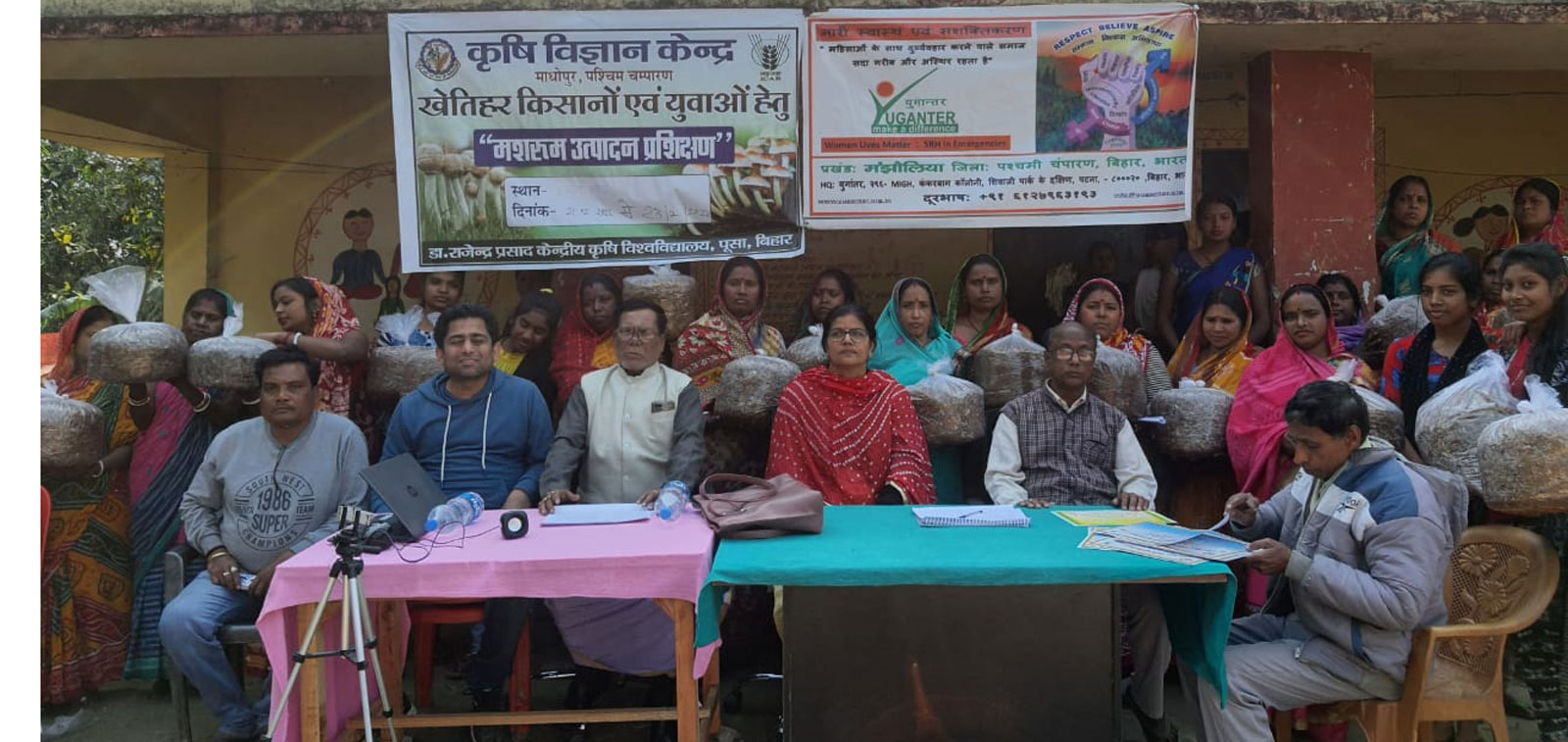In what appears to be building marginalized communities of 10 intervention panchayats of Patna District in Bihar resilient to multi-disasters, Yuganter organized a two-day mushroom farming training programme on October 30-31, 2021 here at its Conference Hall as part of enhancing their livelihood capability and nutrient quotient.
During the two-day enlightening session, renowned trainer Mr Dinanath Sharma who was hired on the recommendation of the Department of Horticulture, Government of Bihar imparted insightful training to around 50 participants belonging to vulnerable sections as to how to grow mushrooms in their houses. Meanwhile, Mr Sharma redefined mushroom farming, saying that it’s not cultivation, it’s grown at the house itself. Also, the trainer touched upon the pros and cons of mushroom farming like:
A. Intricacies of mushroom farming.
B. Types of mushrooms: oyster, milky and button.
C. Nutritional value of edible mushrooms.
D. Livelihood model for micro-level mushroom farming.
E. Production: Organic and non-organic farming
F. Marketing
At a time when the entire world is yet to tide over this vicious cycle of the infection-ridden era, leaving marginalized sections in the lurch, Patna-based Yuganter in collaboration with CARITAS Germany is working tirelessly to make them resilient by providing non-agricultural livelihood options, imparting training and honing their skills as part of BMZ Global Program which seeks to eradicate poverty, ensure food security, promote social inclusion of particularly marginalized groups and build resilience to disasters in the high-risk zones.
Initially, Yuganter distributed over 100 bags of mushroom spawn to 10 trained people who started its cultivation at their houses. Buoyed over growing mushrooms, Rajkumar said that Yuganter has helped me immensely in cultivating this viable income-generating crop.
After completion of this two-day meaningful session, it was revealed that participants are seasonally employed. They have no permanent source of regular income. Consequently, growing mushrooms can be a profitable affair for them. October-March is considered as the best season for mushroom farming. However, they can grow this cash crop throughout the year by maintaining the requisite temperature and other factors.
Addressing the participants, Yuganter Executive Director Mr Sanjay Pandey said that in the wake of Covid-19, mushroom farming assumes significance as the downtrodden sections can become resilient to multi-disasters by adopting this non-traditional livelihood option in their own small houses. He reiterated that mushroom farming adds nutritional value to the daily meals of the people.




